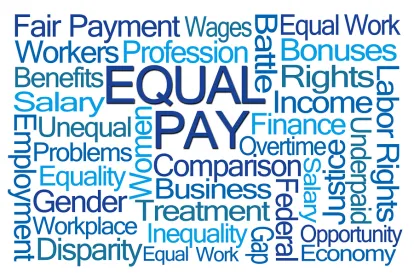Governor Phil Murphy continues to remake the legal landscape in New Jersey. On April 24, 2018, he signed into law far-reaching pay-equity legislation that will take effect on July 1, 2018. The new law amends the New Jersey Law Against Discrimination (NJLAD) and will be known as the "Diane B. Allen Equal Pay Act" (NJEPA). New Jersey now becomes the 47th state to require gender pay equity. But the NJEPA, which was passed overwhelmingly in both houses of the state legislature, does much more than that.
The new law greatly expands the pay-equity protections afforded by the federal Lily Ledbetter Equal Pay Act (the federal EPA) and the pre-amendment NJLAD. The NJEPA does not simply require "equal pay for equal work" for male and female employees, but forbids discrimination on the basis of any protected class "for substantially similar work when viewed as a composite of skill, effort, and responsibilities" (emphasis added). The employer bears the burden of proving that any difference is due to a bona fide seniority system, merit pay, or other reason not based on a protected classification. In assessing whether a differential exists, wages and other compensation must be compared across "all of an employer's operations or facilities." It is not clear whether this includes out-of-state locations.
The NJEPA also extends the period of time within which a suit for compensation discrimination may be brought. As under the federal EPA, each paycheck resets the statute of limitations, so that historically based pay discrimination can be challenged under the new law so long as that discrimination is evident in recent paychecks. But the NJEPA goes further than its federal cousin—permitting employees to seek back pay for up to six years, not just the two permitted under the federal law.
The NJEPA will greatly increase the potential damages an employee may receive. Treble damages are mandatory for successful plaintiffs.
The new law forbids employers from requiring employees or applicants to consent to the shortening of any applicable statute of limitations, or waiving any other NJLAD protections. It is not clear what impact this broad language will have on employment arbitration agreements, which are the subject of other pending legislation.
NJLAD whistleblower protections are expanded under the new law. Employees now are protected from retaliation for seeking legal advice, if they share relevant information with legal counsel or with governmental entities, or if they disclose or discuss pay (and certain other) information with co-workers.
Public contractors have new disclosure requirements. Employers doing business with the government must provide compensation information on their employees based on gender, race, and ethnicity.
With pay-equity issues increasingly in the news, New Jersey employers should audit and review their compensation systems now. Employers also should keep in mind that the NJEPA expressly prohibits employers from seeking to achieve compliance by reducing the compensation of higher-paid employees.




 />i
/>i

